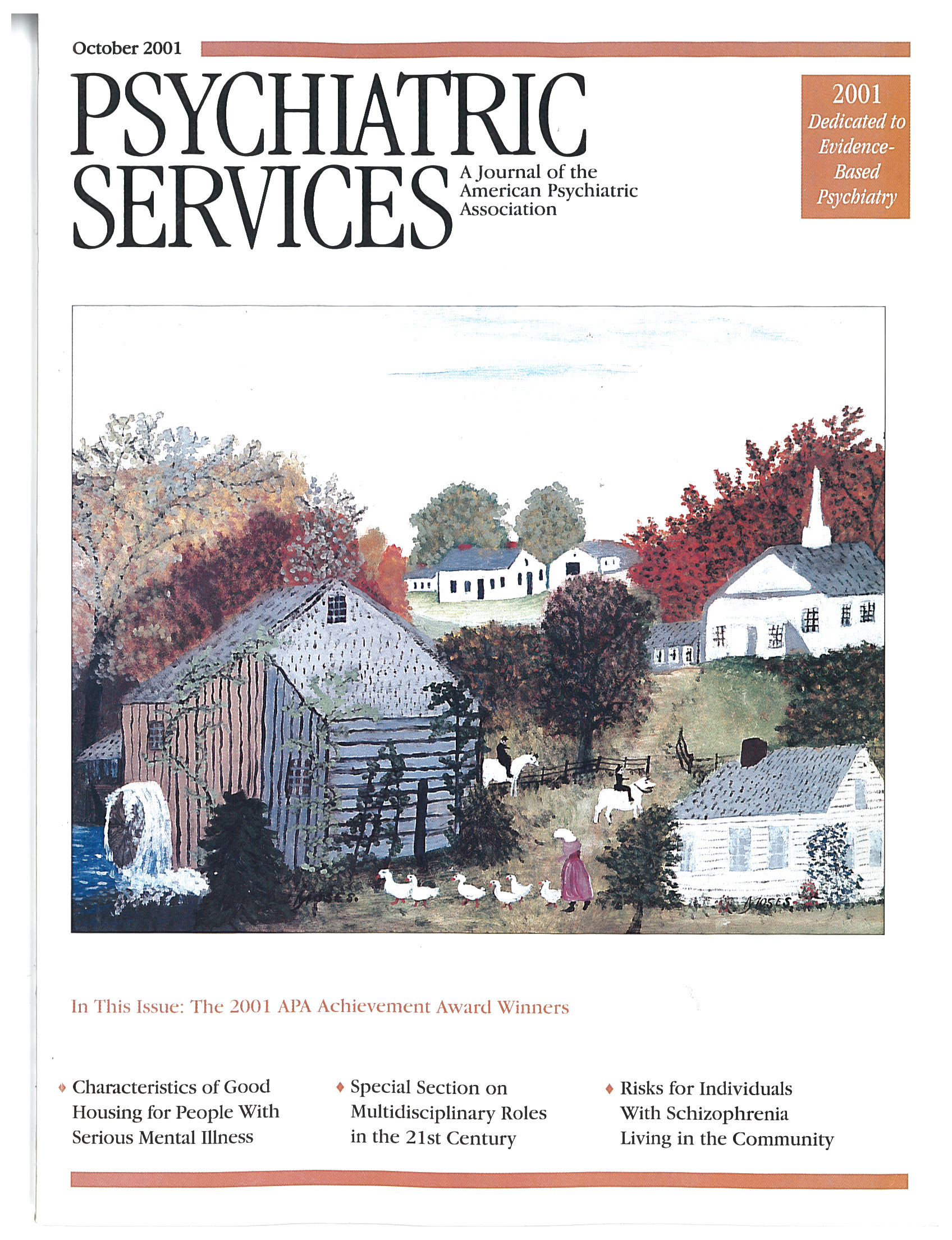Ken Steele, born in 1948, started having auditory command hallucinations at age 14. He dropped out of high school and moved from his family home in Connecticut to New York City in 1966 to live on his own. By this time, he already had a diagnosis of schizophrenia and had attempted suicide. His father was resistant to recognizing mental illness in his son, and his mother was silent. His early years in New York City included employment as a copy editor and as a male hustler. In 1967 Steele was admitted to Bellevue Hospital and Manhattan State Hospital, marking the beginning of what would be a decades-long, coast-to-coast odyssey of psychiatric hospitalizations.
It was not until the 1990s that this odyssey ended and Steele went on to become an active advocate. Steele died in October 2000—of heart failure, peacefully in his own bed—at the age of 52, having become by that time one of the most productive and better-known advocates for individuals with chronic mental illnesses.
Despite its cataloging three decades' worth of poorly conceived and even more poorly delivered psychiatric services, Steele's book is one of hope. "Although schizophrenia remains a great mystery," he writes, "I and others who know this illness through personal experience or as mental health professionals would sound a note of hope. We know that today much can be done to help people not only survive schizophrenia, but to have a life, as I do now."
Steele does a very credible job not only of describing the symptoms of schizophrenia and how they interfered with his existence but also of comparing these symptoms with other aspects of his life. For example, he remarks, "Being a hustler has this in common with being a schizophrenic: the bizarre becomes normal." Steele also provides a history of the antipsychotic medications prescribed for him and his responses to them. When the "voices stopped," it was apparently in response to risperidone, the first atypical antipsychotic he received.
Steele provides powerful descriptions of inpatient psychiatric settings, particularly state hospital settings from Massachusetts and New York to California and Hawaii. His portraits of the hospitals include the physical environment, the staff's attitudes and behaviors, and the broad array of other patients. Steele started his inpatient psychiatric "career" in a different era; for example, he notes that in the 1960s Manhattan State Hospital housed 3,600 patients, with as many as 50 patients per ward.
One comes away from reading this book with the fundamental sense that Steele's journey is a repeating cycle with no forward movement until near the end of his life. At one point he notes, "I was returned to Harlem Valley, continuing a schizophrenic odyssey that would find me cycling in and out of hospitals and halfway houses from Maine to Hawaii and points in between. Caught up in the revolving door of the mental health system, I'd go round and round, without really getting anywhere at all."
One is also left wondering whether it is too easy to put Steele's recovery down to the advent of atypical antipsychotic medications, rather than to attend more closely to how poorly other interventions in the psychiatric armamentarium, including psychotherapy and psychosocial rehabilitation, were used throughout most of Steele's life.
The Day the Voices Stopped does not cover new ground for those familiar with the psychiatric services of the era Steele describes. However, even for these readers, this autobiography will be a powerful reminder. For others, including physicians, residents, medical students, college students, and the general public, The Day the Voices Stopped is an excellent portrayal of both the wrong turns psychiatry has taken between the 1960s and today and of the hope that exists, because of changed attitudes, new technologies, and a developing pharmacopoeia, that the future need not repeat the past.

